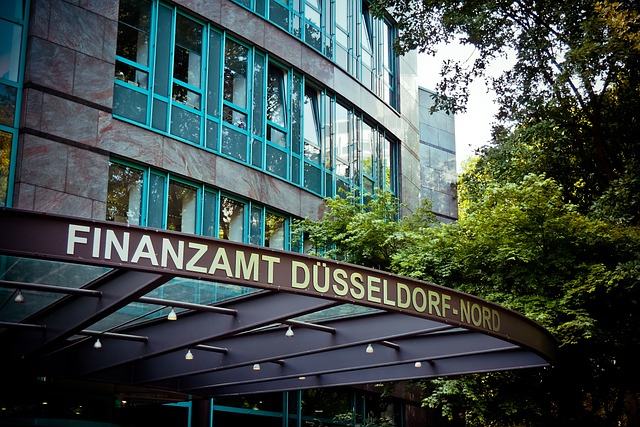Ponzi schemes in South Africa are fraudulent investments promising high returns with no risk, luring investors by funding existing ones rather than generating legitimate profits. Historically present since the colonial era, these schemes target vulnerable populations and collapse when new funds dwindle, leaving substantial losses. Recognizing red flags, verifying opportunities through regulatory bodies like SASRA, educating oneself, diversifying investments, and avoiding hasty decisions are crucial to protect against these insidious scams in South Africa's complex financial landscape.
“Unveiling the Insidious Nature of Ponzi Schemes in South Africa: A Comprehensive Guide
This article delves into the intricate world of Ponzi schemes, a deceptive investment fraud prevalent in South Africa. We begin by demystifying these schemes—a definition and their basic structure laid bare. Exploring the historical landscape, we trace early examples and recurring patterns. Understanding common themes and target groups is key to prevention. Subsequently, we uncover the operational mechanism behind these scams and equip readers with critical tools for recognition and avoidance, ensuring a safer financial environment.”
- Understanding Ponzi Schemes: A Definition and Basic Structure
- The History of Ponzi Schemes in South Africa: Early Examples and Patterns
- Common Themes and Target Groups in SA Ponzi Schemes
- How Ponzi Schemes Operate: The Behind-the-Scenes Mechanism
- Protecting Yourself: Recognizing and Avoiding Ponzi Scams in South Africa
Understanding Ponzi Schemes: A Definition and Basic Structure

Ponzi schemes are a type of fraudulent investment operation that promises high returns with little or no risk to investors. In South Africa, as in many other countries, these schemes have become a growing concern for regulators and investors alike. The basic structure of a Ponzi scheme involves attracting new investors to fund the payments made to earlier investors, rather than generating profits through legitimate means.
At first glance, this model might seem appealing, especially with promises of significant returns. However, it’s unsustainable; as more investors are needed to pay off previous ones, the scheme requires a constant influx of new money to keep up appearances. When new investments dry up, the entire structure collapses, leaving many investors with substantial losses. Understanding these schemes is crucial for South Africans looking to protect their hard-earned money in an increasingly complex financial landscape.
The History of Ponzi Schemes in South Africa: Early Examples and Patterns

Ponzi schemes have a long history in South Africa, with early examples dating back to the late 19th century when the country was still colonised. These fraudulent investment schemes prey on the hopes and dreams of investors, promising high returns with little or no risk. One notable case from this era involved a man named Johannes Steyn, who in the 1880s ran a scheme offering investors shares in a mythical gold mine. Many South Africans, enticed by the promise of vast riches, invested their savings only to discover the scheme was a complete fabrication.
Over time, Ponzi schemes have evolved and taken on new forms, but their core principle remains the same: pay early investors with money from later investors. In post-apartheid South Africa, these schemes have cropped up in various sectors, including real estate, cryptocurrency, and education. One recent high-profile example is a cryptocurrency scheme that promised investors astronomical returns within a short period. As with historical cases, many citizens fell victim to these scams, highlighting the need for financial literacy and regulatory measures to protect investors from Ponzi schemes in South Africa.
Common Themes and Target Groups in SA Ponzi Schemes

In South Africa, Ponzi schemes often share several common themes. These schemes typically promise high returns with little or no risk, appealing to investors seeking quick profits or financial security. They often operate through complex structures involving a flow of funds from newer investors to pay off older ones, creating the illusion of profitability.
The target groups for these schemes are diverse and can include both individuals and businesses. Often, they prey on the financially vulnerable, such as retirees or low-income earners looking for stable investments. Some target specific communities, leveraging cultural or social trust networks to gain traction. In South Africa, where economic disparities are vast, Ponzi schemes have been known to exploit these inequalities, making them particularly insidious and challenging to regulate effectively.
How Ponzi Schemes Operate: The Behind-the-Scenes Mechanism

Ponzi schemes in South Africa operate on a simple yet insidious principle: promising high returns with little or no risk to investors. The behind-the-scenes mechanism involves a continuous flow of new money from later investors being used to pay off earlier investors, creating a false impression of success and sustainability. Initially, the scheme might offer seemingly impressive returns, luring in unsuspecting individuals eager for financial gains. As more people invest, the scheme grows, allowing for the payment of these initial returns. However, this growth is not driven by actual profit generation but rather by the continuous influx of new funds.
In South Africa, as in many other countries, Ponzi schemes often target vulnerable populations seeking financial security or significant wealth accumulation. The promise of high returns with minimal effort appeals to a wide range of investors. Operators of these schemes use sophisticated marketing strategies and misleading information to attract participants. Once the flow of new money slows down, however, the whole structure collapses, leaving many investors with substantial losses. Recognizing and exposing these schemes is crucial for protecting South African investors from financial harm.
Protecting Yourself: Recognizing and Avoiding Ponzi Scams in South Africa

Protecting Yourself from Ponzi Schemes in South Africa
In South Africa, as with anywhere, it’s crucial to be vigilant against Ponzi schemes. These deceptive investments promise high returns with little or no risk, but they’re built on a house of cards—funds from new investors are used to pay off early participants. Recognizing the signs is key: extravagant claims about guaranteed returns, pressure to act quickly, and lack of transparency are red flags. Always verify the legitimacy of an investment opportunity by checking with regulatory bodies like the South African Securities Regulatory Authority (SASRA).
To avoid becoming a victim, educate yourself about legitimate investment options and diversify your portfolio. Be wary of promises that sound too good to be true, and take the time to research companies and opportunities thoroughly before investing. Remember, patience and thoroughness are better allies than haste and ignorance when it comes to protecting your hard-earned money from Ponzi scams in South Africa.
Ponzi schemes, while a global phenomenon, have left their mark on South Africa, with a unique set of patterns and target groups. Understanding these schemes is paramount in safeguarding one’s investments. By recognizing the common themes and mechanisms behind these fraudulent practices, individuals can protect themselves from becoming victims. Staying informed and adopting caution when investing, especially in the face of high-return promises, is key to preventing the spread of Ponzi scams in South Africa.














